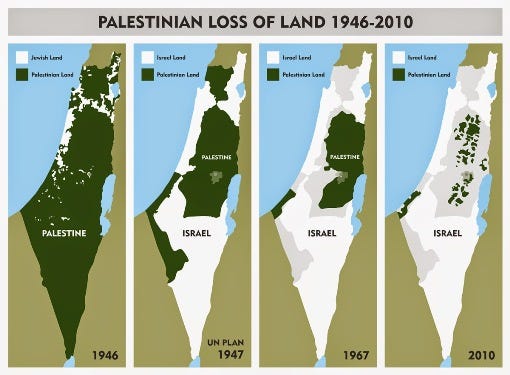The difficult political situation between the PA and the Israelis indicates the failure of the "two-state solution" on which the settlement process was built, and recent years have witnessed an increasing Israeli tendency to talk about the "death" of this solution, And replacing it with the one-state model, under the pretext that there is no practical possibility to implement the physical division of the currently occupied Palestinian territories, due to the field developments that occurred on the borders of the so-called “Green Line” and the ceasefire lines that emerged after the aggressions of 1948 and 1967.
The occupying power did not hesitate to “annex” large parts of the West Bank to its borders, and this was reflected in the increase in settlement projects, which increased the motives for gaining new momentum for the one-state idea, leaving the “two-state solution” aside, although this idea that requires in-depth analysis raises signs The question is whether the one-state framework is indeed a viable solution.
In recent years, the Israelis have discussed possible models for resolving the conflict with the Palestinians, the most important of which are: a unified state covering the entire geographical region without internal borders, or the self-rule of a state on independent
Palestinian land, or a single federal state divided into two Jewish and Palestinian provinces, with wide powers, or the confederation, which is A model in which there is a division into two states: Palestinian and Jewish with specific open borders between them, while a government is established at the confederal level, bringing together Israeli and Palestinian elements, and making decisions in specific areas such as security and trade.
It can be concluded in the light of this analysis that there does not appear to be a real possibility of forming a permanent and stable solution to the Israeli-Palestinian conflict in any of the models presented. The main reason is to expect provocations between them, because they have deep problems of long-term hostility, gaps at the religious, cultural, social and economic levels, and a serious Israeli concern that this continuous provocation will lead to instability, and the outbreak of continuous waves of confrontations and conflicts.
Although the idea of abolishing the Jewish character of the state is not accepted by the vast majority of Israelis, and therefore most of the supporters of the one-state idea among them refer to a state that maintains this character, despite its difficulty due to the demographic dimension; Because the expansion of the state's borders to include the West Bank adds many Palestinians to it at the expense of the number of Israelis.
Presenting these alternative models for the "two-state solution" reveals Israeli concern about the increasing hostility of both sides in all cases in which the Palestinians become part of a state with a Jewish identity, without obtaining their national identity, and thus depriving the Palestinians of their full rights in that promised state, will deepen feelings discrimination and hostility; Which could lead to confrontations, up to a civil war within that one state, an alternative to the "two-state solution", which Israeli forums have recently warned of.
Musab✍️


You have laid this out so well, thank you. It seems clear israel doesn’t *really* care about making peace happen unless it’s 100% under their terms -- which would mean things will not change for the Palestinian people.